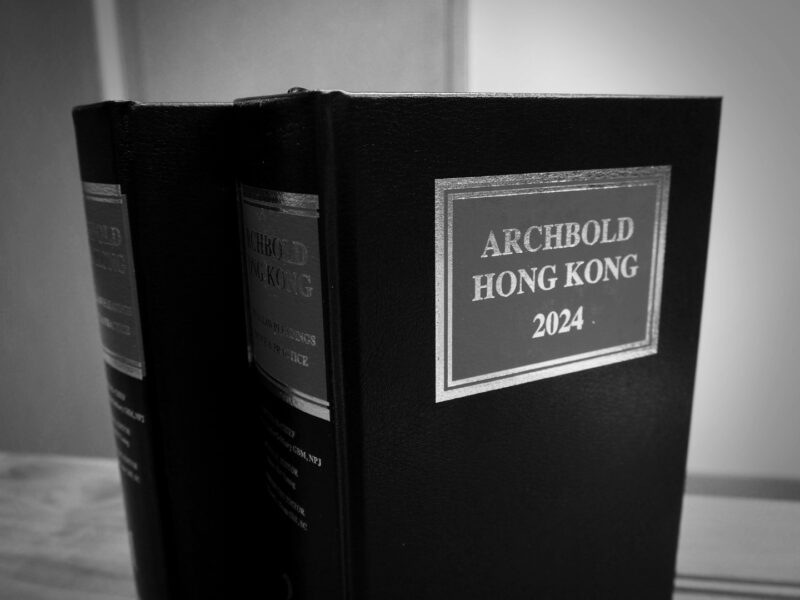Mr Gordon Chan traced the evolution of animal protection laws in Hong Kong in the inaugural GBA University Cat Welfare Alliance seminar.


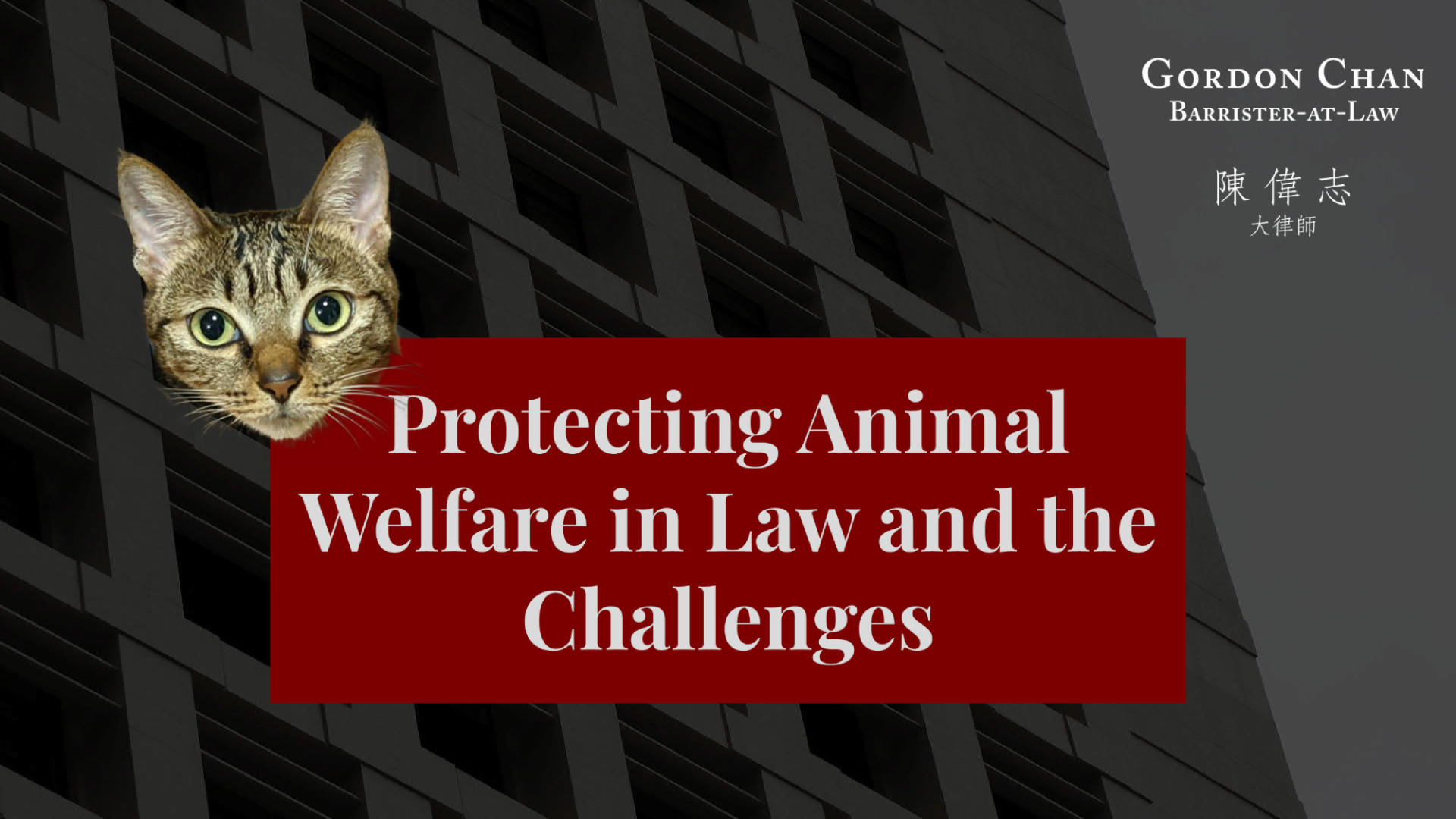
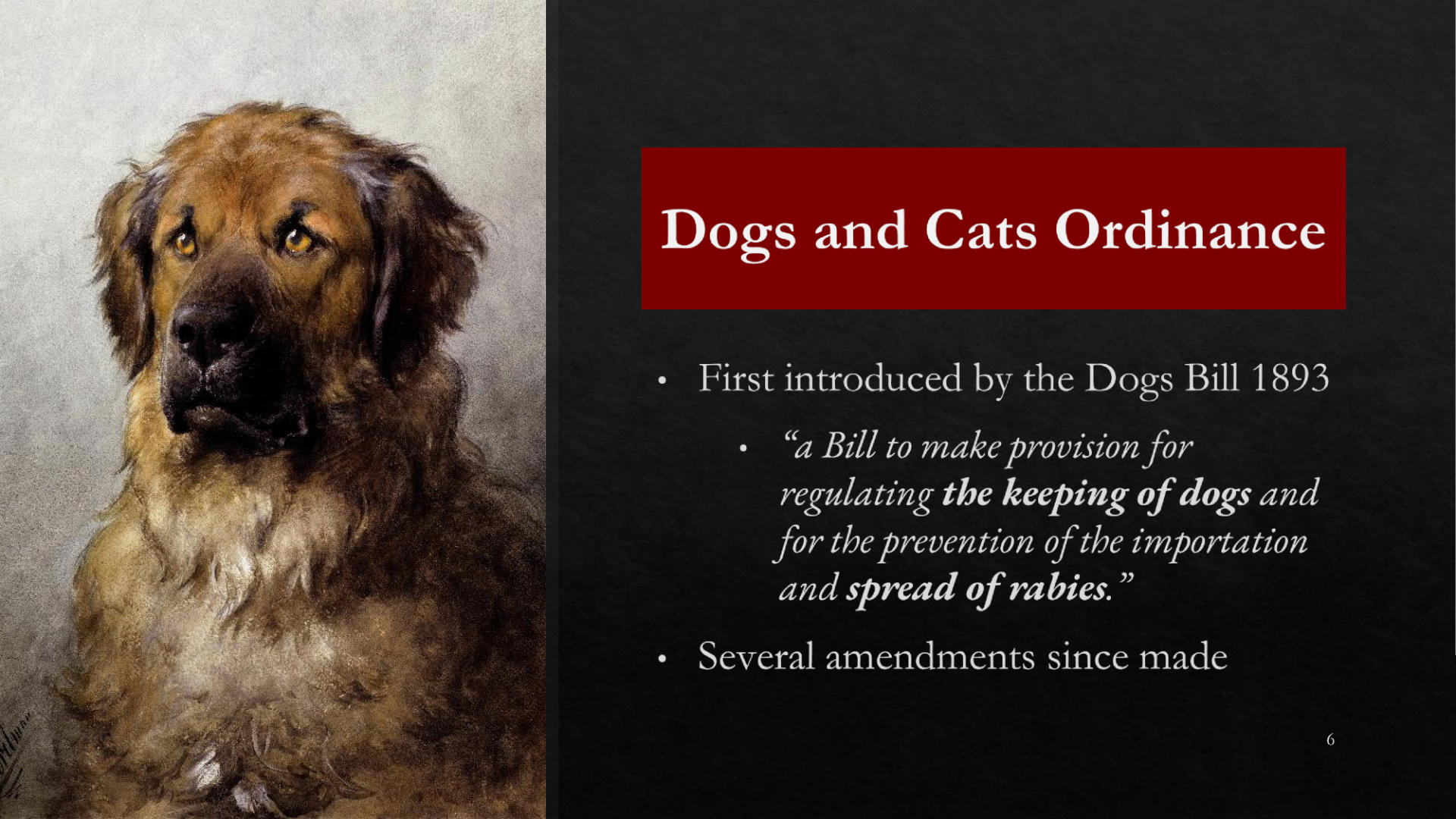
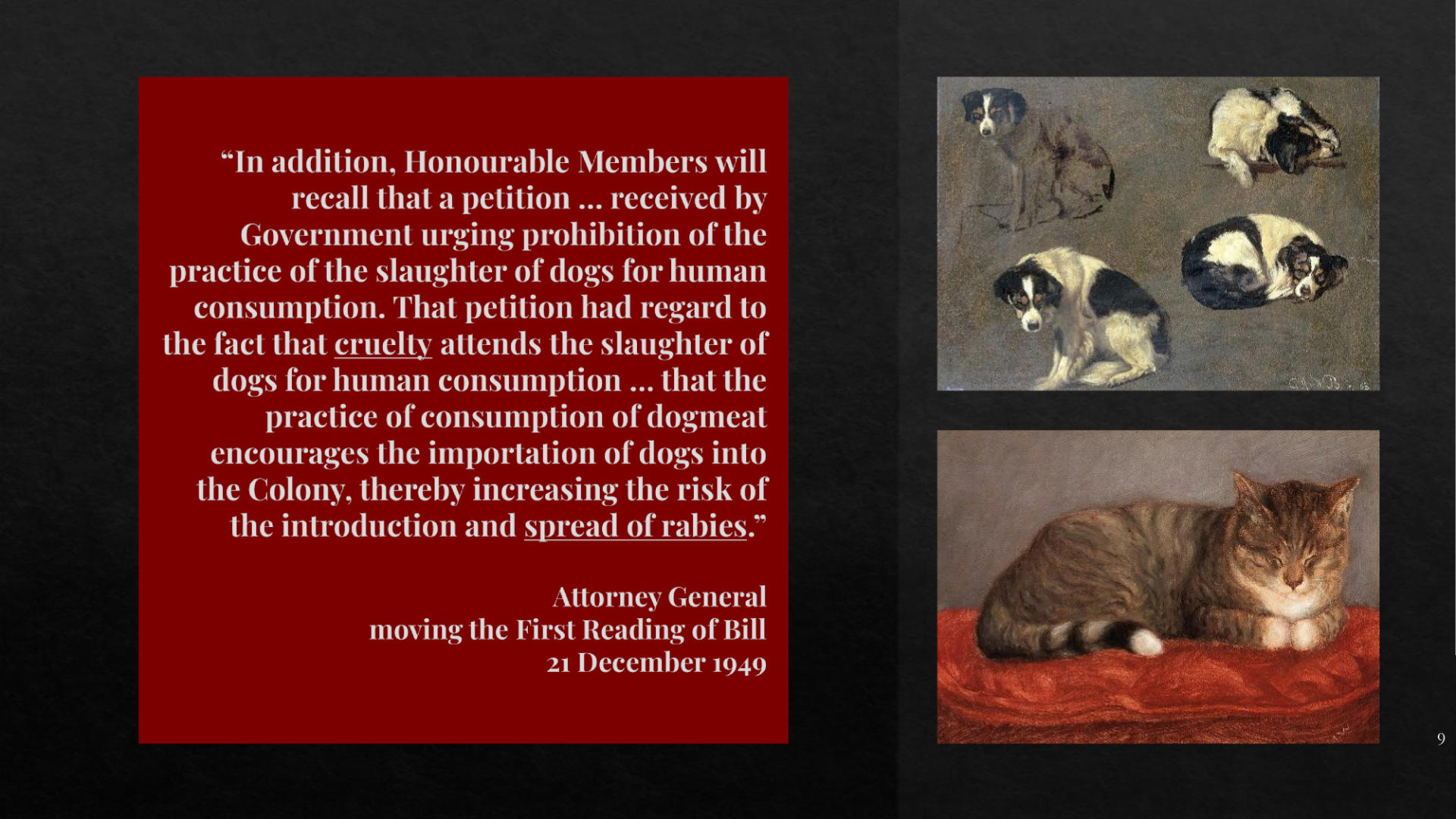
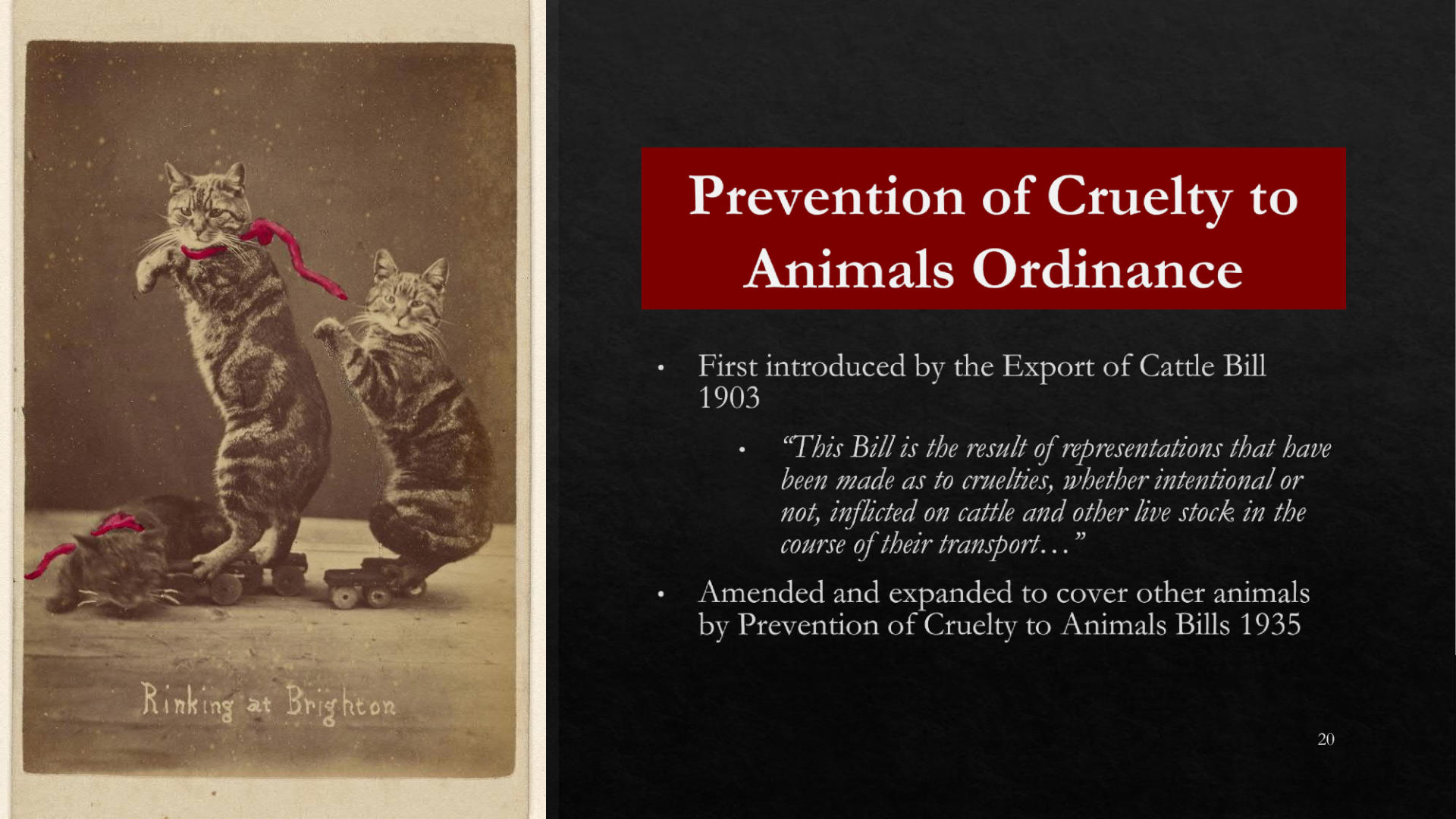
Mr Gordon Chan was invited to give a talk titled “Protecting Animal Welfare in Law and the Challenges” at the inaugural GBA University Cat Welfare Alliance seminar by its founder Ms Kimberlie Chu, discussing Hong Kong’s ban on consumption of cats and dogs, and ban against cruelty to animals.
At present, slaughtering of dogs or cats for food is prohibited by the Dogs and Cats Regulations (Cap 167A), made under the Dogs and Cats Ordinance (Cap 167). Its root can be traced to the Dogs Bill 1893, and the Dogs and Cats Bill 1950. When the prohibition was introduced over a century ago, the main objective was the control of the spread of rabies – a disease that remains fatal to humans nowadays. When the ban extended to cats in the 1950 bill, the focus also extended to animal cruelty of the practice.
“In addition, Honourable Members will recall that a petition … received by Government urging prohibition of the practice of the slaughter of dogs for human consumption. That petition had regard to the fact that cruelty attends the slaughter of dogs for human consumption … that the practice of consumption of dogmeat encourages the importation of dogs into the Colony, thereby increasing the risk of the introduction and spread of rabies.”
Attorney General
moving the First Reading of Bill
21 December 1949
On the other hand, the prevention of animal cruelty also had a long history in Hong Kong. The present Prevention of Cruelty to Animals Ordinance (Cap 169) can be traced to the Export of Cattle Bill 1903, the Prevention of Cruelty to Animals Bills 1935 and amendment bills of 1939 and 2006. While the 1903 Bill is only concerned with cruelties to cattle and livestocks, the 1935 Bill extended to cover other animals while the 1939 Bill regulated pet-shops. In 2006 the maximum penalty for animal cruelty offences were substantially increased, from $5,000 to $100,000, and 6 months to 12 months imprisonment.
Notwithstanding the substantial increase of penalty, the Court of Appeal in Secretary for Justice v Fung Chi Hoi [2019] 4 HKLRD 188 observed that the offence remained frequently committed. The court also emphasised the evil nature of the offence:
“24. This court must emphasise that cruelty to animals is inhuman, causing not only physical injuries but also psychological pain and torment to the animal. Such brutal behavior is extremely disgusting and not tolerated in any civilized community, and it is also a serious crime prohibited by law. Because of its evil nature, the court in principle imposes a deterrent sentence in relation to the offence of cruelty to animals.”
While Mr Gordon Chan shared recent sentencing cases to show the court increasing stance to impose deterrent sentences. He also shared how other legal aspects other than punishment under criminal law could make our society more pet or animal friendly. For example, the removal of prohibition of keeping pets from the Deed of Mutual Covenant and to allow for pets on public transport could all make our city more pet-friendly and encourage pets to be well treated.
Gordon Chan, Esq
Barrister-at-law, Archbold Hong Kong Editor on Public Health, and Member of the Bar Association's Committee on Criminal Law and Procedure. Specialised in medical, technology and criminal law.



